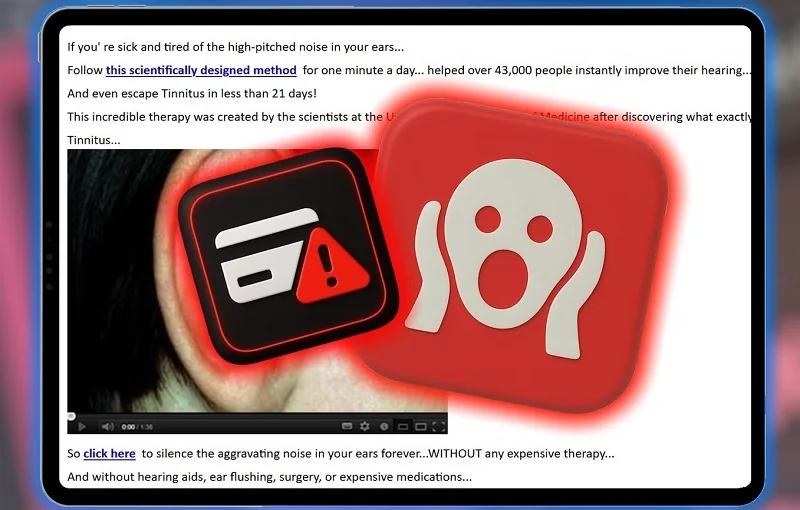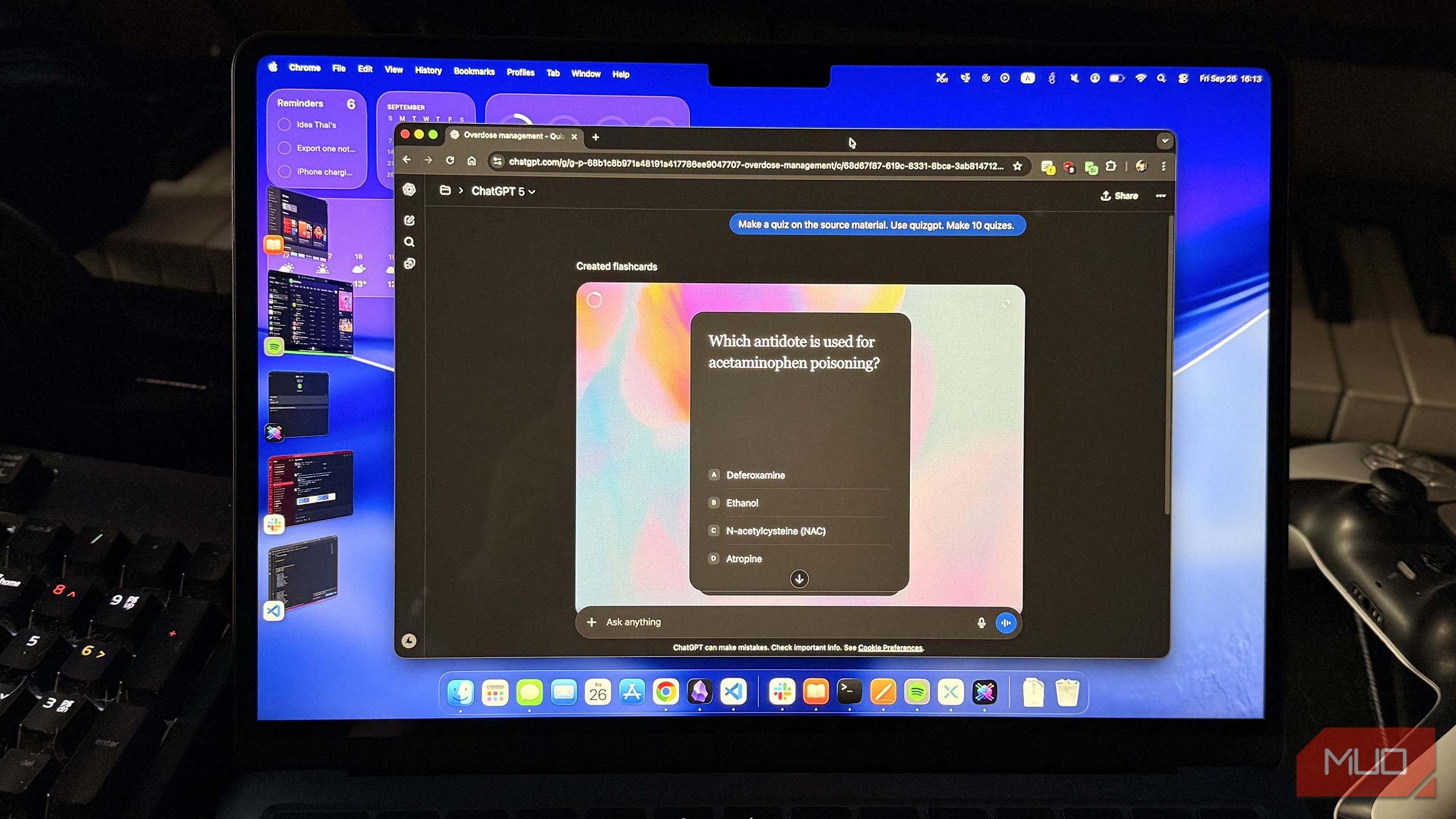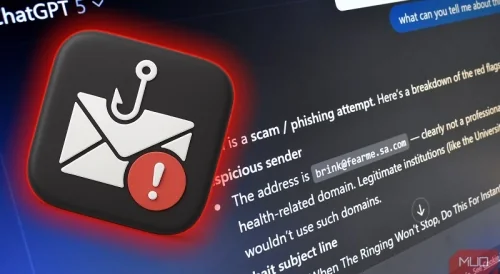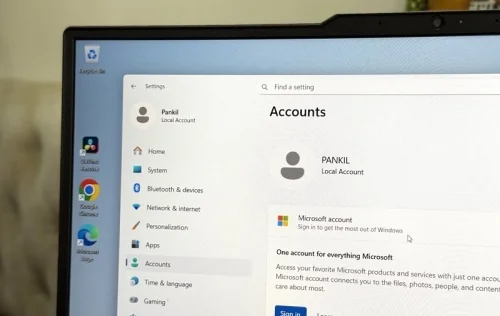These chatbots saved me from scam emails I couldn’t recognize
Chatbots are everywhere, and we're all using them for every task under the sun. But how about stopping you from clicking on a scam email, or any other type of scam message, for that matter?
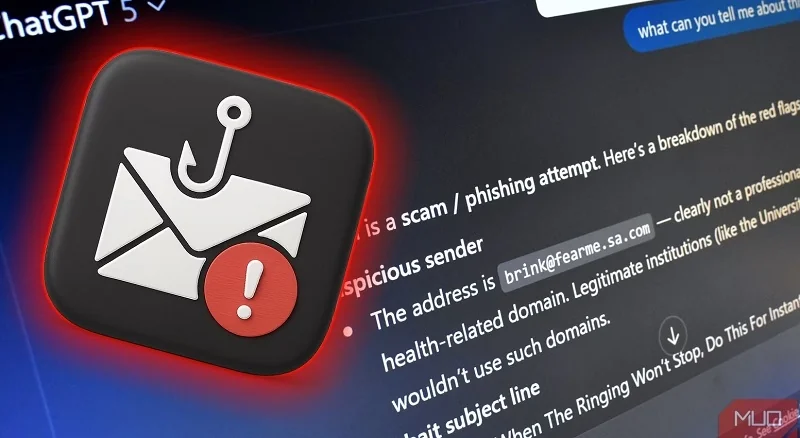
The only question is, which chatbot is the best at spotting a scam before you click?
ChatGPT
GPT-5 was quick to spot my scam email
As you may expect, ChatGPT was quick to spot that I was feeding it a scam email. It jumped to attention and rapidly explained that it was a scam/phishing attempt, then detailed the specific red flags that I should be aware of.
I like that the red flags are laid out in steps, with each one containing a little information about why it's a problem. There were seven red flags in total. It then wrapped it up with a nice little conclusion and some steps explaining what I should do next.
All in all, it did well up again this relatively simple phishing email.
Claude
Similarly, it didn't take Sonnet long to spot the scam
It also followed up with some specific information on why the medical parts of the email were also false, explaining that tinnitus is a complex condition, and so on.
This is a textbook example of health-related email fraud designed to exploit people with medical concerns.
Gemini
Straight to the point—it's a scam
Like Claude and ChatGPT, Gemini also wasted no time getting stuck into the key points of this email and how it was "likely trying to scam you or install malware."
The explanations were good and clear, though I did have one small gripe with it. It noted that my email client, Thunderbird, had blocked remote content, which Gemini says, "is a crucial warning sign that the email is not to be trusted." Now, this is true, but I block remote content by default, so it's not quite accurate there. This is something it may have overlooked had this feature not been enabled.
I like the attention to detail Gemini gives to the fake URL, though, explaining that this is likely the most dangerous part of the email, and the potential risks clicking it could incur.
Grok
I'm safe from the scam, but bored with reading
Grok took a little longer to analyze the image compared to the other tools. But, wow, when it got going, it really wanted to tell me about every aspect of the scam in detail—finishing up with some details on dealing with tinnitus at the end.
The information on spotting the scam was accurate, and correctly asserts that it uses the "University of Iowa School of Medicine" to lend some authenticity to the claims, helping to build trust. But I'm a little surprised it does do as the other chatbots do and provide some simple steps on dealing with the scam email. The information on coping with and finding resources on tinnitus is where it ends.
Perplexity
Short and sweet: it's a scam
The email example I tested the chatbots with is basic. As the chatbots pointed out, it's filled with red flags that make it clear it's a scam and that engaging with it will only end in tears.
However, some phishing emails are much more difficult to spot, or arrive at the opportune moment that casts doubt in your mind. For example, I nearly fell for a perfectly-timed phishing email that arrived as I was experiencing difficulties with my Netflix account.
The spoofed email address, appearing to be from Netflix, while I struggled to access my Netflix account, was the perfect combo, and I was almost snared by the scam.
So, what did the AI chatbots have to say about my close-escape?
So, where I had missed some of the key tell-tale signs I was about to engage with an email scam, the AI chatbots would have saved the day.
I believe that the more complex the email details and the higher the quality of the writing, the more challenging it will be for the chatbots. However, the same is absolutely true of most of us, and perhaps even more so if there is a clear emotional trigger or specific call-to-action that requires immediate attention.
At the very least, the AI chatbots have no emotional attachment to the email content, so the analysis is typically fast and accurate. Should you use it all the time? Probably not, as the human element is still important.
But if you're unsure about the source of an email or what it claims, these AI chatbots are a handy second opinion that could keep your accounts safe from scams.
Share
What's Your Reaction?
 Like
0
Like
0
 Dislike
0
Dislike
0
 Love
0
Love
0
 Funny
0
Funny
0
 Angry
0
Angry
0
 Sad
0
Sad
0
 Wow
0
Wow
0
